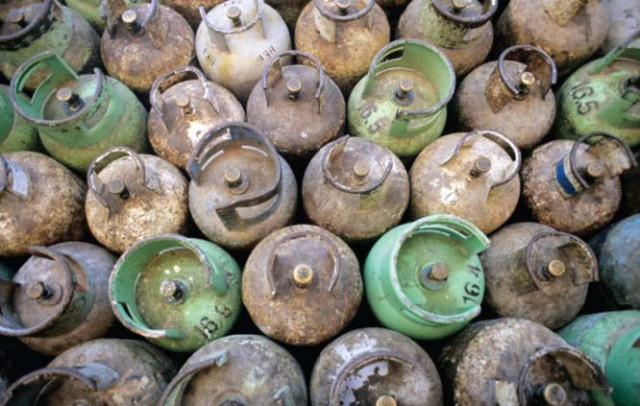Government hegemony: State-run companies to control LPG supply
New policy brings down gas prices, private businesses register protest.

The Ministry of Petroleum and Natural Resources has announced that it will now control liquefied petroleum gas (LPG) purchase and sale through a subsidiary of two state-run gas companies, in an apparent threat to private LPG businesses which are locked in a row with the government over implementation of the new LPG Policy 2011.
The ministry on Saturday said the subsidiary of Sui Northern Gas Pipelines Limited (SNGPL) and Sui Southern Gas Company (SSGC) would run LPG business on professional lines, sparking a sharp reaction from the LPG Association of Pakistan, which termed it a move to enforce public sector monopoly to oust private sector from the market.
This announcement of the ministry meant that the state-run companies would have priority rights over LPG purchase whenever gas is discovered at a field. At a press conference on Friday, the LPG association and another one called All Pakistan LPG Distributors Association slammed the government for announcing the new policy without seeking input from stakeholders. They demanded its immediate rollback.
“It is the reaction of those who have thrived on LPG quota system by fleecing people by charging very high prices,” the petroleum ministry said in a statement, adding “in fact the group has not let competition grow which has resulted in cartelisation.”
The new LPG policy, which came into effect on October 3, has led to a drop of 56 rupees in prices of household cylinder, weighing 11.8 kg.
The ministry claimed that the new policy was based on the principle of price parity for local and imported LPG, which took away powers of market manipulation from the LPG mafia.
Companies with import-based business will be very competitive, saving people from LPG cartels. “The government has intervened at a right time to take over Progas terminal and has saved it from falling into the hands of a particular group,” the ministry said while referring to the big LPG infrastructure and marketing company, which was purchased by SSGC.
“With given gas shortage issues, the government is striving to promote LPG as an alternative fuel and this can best be achieved through the extensive network of SSGC and SNGPL,” it said.
However, the LPG association argued that the policy had been made for the sole purpose of resuscitating a bankrupt private sector LPG marketing company and termed it “unsustainable, untenable and unfair, which will be challenged in court.” It said the policy demonstrated the intention of the government to provide extraordinary benefits to a single party at the cost of entire industry and consumers.
Pakistan currently produces about 1,200 tons of LPG per day, down from about 1,800 tons few years ago because of depletion of reserves and slowdown in discovery of new fields.
Published in The Express Tribune, September 18th, 2011.


















COMMENTS
Comments are moderated and generally will be posted if they are on-topic and not abusive.
For more information, please see our Comments FAQ